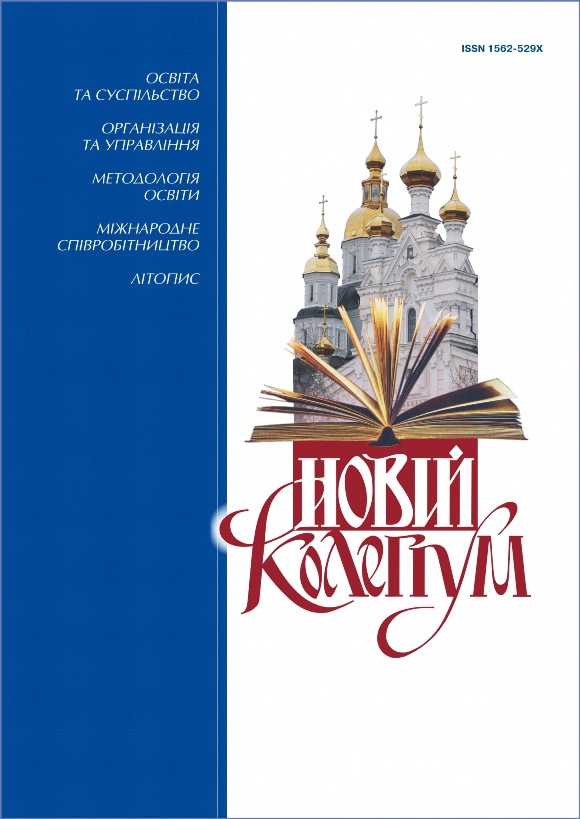The role of temperament in the process of learning foreign language communication
DOI:
https://doi.org/10.30837/nc.2021.3.44Keywords:
foreign language communication, temperament, active methods, learning processAbstract
This article discusses the role of temperament in the process of learning foreign language communication of foreign students.
It is noted the need to use active teaching methods, which are characterized by a high degree of involvement in the learning process and the activation of cognitive and creative activities in solving problems. When using such methods, each participant gets opportunities to express themselves in a situation as close as possible to living conditions. It is believed that in the process of modeling active methods, as well as in the distribution of roles in them, it is necessary to take into account the individual characteristics of participants, ie different types of temperament, which will help most effectively involve foreign students in learning foreign language communication.
People with the type of temperament "choleric" are offered leading roles, because the choleric is always ready to get involved in important and interesting work.
People with the "sanguine" temperament type can not only be offered leading roles but also act as moderators in certain situations, because they are a lively, mobile person, quick to respond to environmental events, relatively easily experiencing failures and troubles.
People with a phlegmatic temperament can be given secondary roles, because they have a strong desire and more or less constant mood, weak external expression of mental state.
Melancholics, who are easily vulnerable, prone to deeply experience even minor setbacks, who seem sluggishly react to the environment, are offered secondary roles.
It is concluded that in the process of choosing active teaching methods the teacher must take into account the peculiarities of all types of temperament, which allows not only to create a more comfortable atmosphere in the classroom, but also to ensure a high degree of speech and effectively prepare for foreign language communication.
References
Горелов И. Н., Седов К. Ф. Основы психолингвистики : учеб. пособие. 3-е перераб. и доп. изд. Москва : Лабиринт, 2001. 304 с.
Зарукина Е. В., Логинова, Н. А., Новик М. М. Активные методы обучения: рекомендации по разработке и применению : учеб.-метод. пособие. СПб. : ПбГИЭУ, 2010. 59 с.
Курьянов М. А., Курьянов В. С. Активные методы обучения : метод. пособие. Тамбов : Изд-во ФГБОУ ВПО «ТГТУ», 2011. 80 с.
Методика обучения иностранным языкам в средней школе. Москва : Высш. шк., 1982. 373 с.
Мещеряков Б. Г., Зинченко П. В. Большой психологический словарь. СПб: ОЛМА-ПРЕСС, 2003. 672 с.
Покушалова Л. В. Формирование профессионально-коммуникативной компетенции студентов в процессе деловой игры // Социосфера. 2011. № 4. URL: http://sociosphera.com
Сафина Р. Н., Смирнов А. В., Минияров В. М. Ролевое и деловое взаимодействие студентов вуза как механизм формирования личности будущих менеджеров // Изв. Самар. науч. центра Рос. академии наук. 2011. Т. 13. № 2. С. 58-61.
Философский словарь. 7-е изд., перераб. и доп. Москва : Республика, 2001. 719 с.
Cantrell Paul E. A study of a temperament. Mechanicsburg, Pennsylvania. 2001. p. 50.
Douglas Broun H. Strategies for success: a practical guide to learning English. July 2d, 2001. 80 p.

